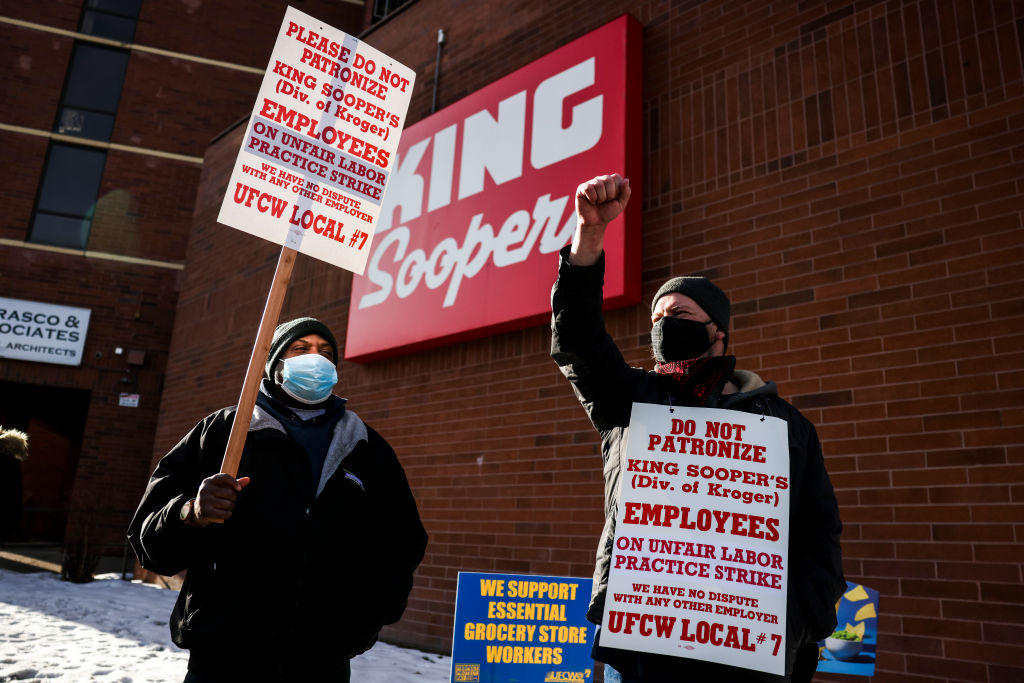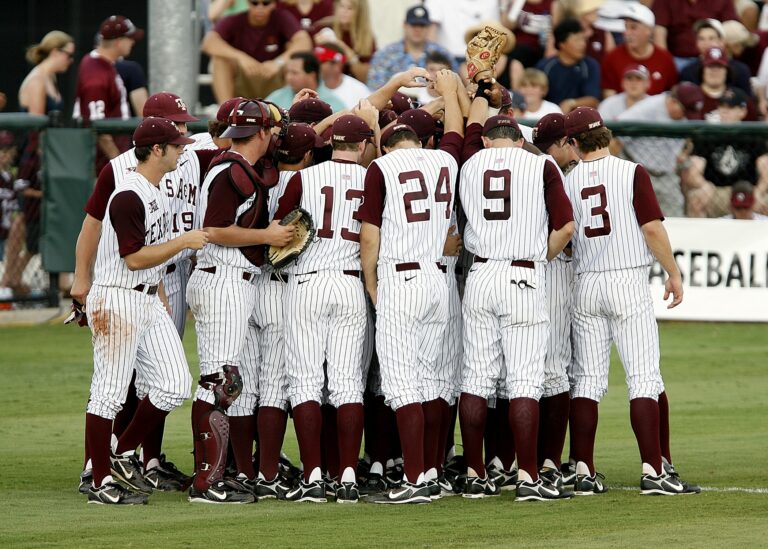Jacqueline Rayfield is a student at Harvard Law School.
In today’s News and Commentary, a Kroger worker strike hints at broader dissatisfaction among retail workers, and the American Federation of Teachers filed the latest in a string of lawsuits against Elon Musk’s Department of Government Efficiency (DOGE).
In Colorado, over 10,000 workers at the Kroger-owned supermarket, King Soopers, reached nearly a week on strike. The workers’ union, UFCW Local 7, began bargaining with Kroger and King Soopers in October, but the union reported that both retail chains refused to bargain in good faith. UFCW called an unfair labor practice (ULP) strike on February 6 in response to the retail chain’s refusal to bargain. Yesterday, King Soopers responded to the ongoing strike by seeking a temporary restraining order against thousands of their own striking employees, claiming that these workers have created unsafe conditions outside their stores. Commentators note that despite low overall union density, retail workers continue to express interest in joining unions, and their union membership rate has increased gradually in the past year. Workers at Starbucks, Amazon, and Whole Foods have made headlines over the past year for their unionization efforts against union-hostile employers.
The American Federation of Teachers (AFT) filed a lawsuit on Monday alleging that Elon Musk’s new government department, DOGE, violated federal law by disclosing U.S. citizens’ personal information. Musk’s Department of Government Efficiency, named after the Shiba Inu-themed meme and cryptocurrency, aims to reduce government spending and regulation. The AFT’s suit against DOGE is one of many filed by labor unions alleging that the Trump administration has breached the Privacy Act.






Daily News & Commentary
Start your day with our roundup of the latest labor developments. See all
August 19
Amazon’s NLRA violations, the end of the Air Canada strike, and a court finds no unconstitutional taking in reducing pension benefits
August 18
Labor groups sue local Washington officials; the NYC Council seeks to override mayoral veto; and an NLRB official rejects state adjudication efforts.
August 17
The Canadian government ends a national flight attendants’ strike, and Illinois enacts laws preserving federal worker protections.
August 15
Columbia University quietly replaces graduate student union labor with non-union adjunct workers; the DC Circuit Court lifts the preliminary injunction on CFPB firings; and Grubhub to pay $24.75M to settle California driver class action.
August 14
Judge Pechman denies the Trump Administration’s motion to dismiss claims brought by unions representing TSA employees; the Trump Administration continues efforts to strip federal employees of collective bargaining rights; and the National Association of Agriculture Employees seeks legal relief after the USDA stopped recognizing the union.
August 13
The United Auto Workers (UAW) seek to oust President Shawn Fain ahead of next year’s election; Columbia University files an unfair labor practice (ULP) charge against the Student Workers of Columbia-United Auto Workers for failing to bargain in “good faith”; and the Environmental Protection Agency (EPA) terminates its collective bargaining agreement with four unions representing its employees.